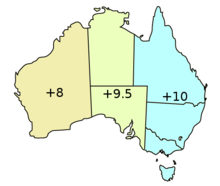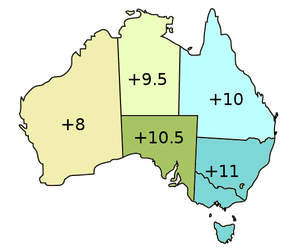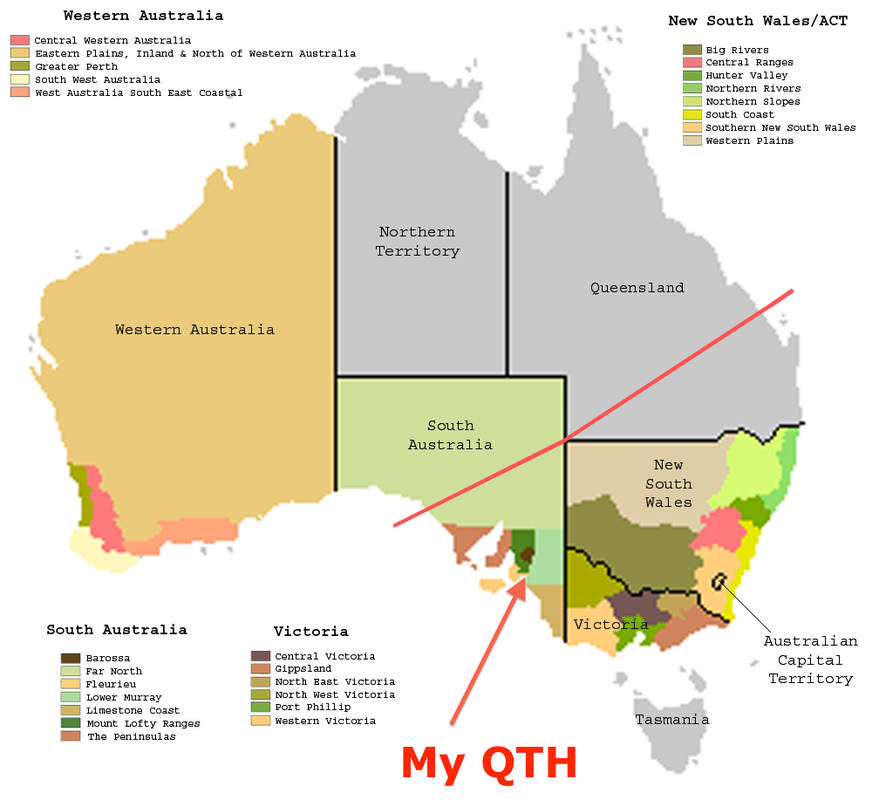Australia - some interesting facts
- Population is 22,620,600 (2011)
- Total area is 7,617,930 km2.
- Capital is Canberra
- Largest city is Sydney
- Aboriginal Australians are indigeneous to the Australian continent.
- The UK fits into Australia thirty-three and a third times
- The platypus is only found in Australia. When the English first saw a specimen of the platypus they believed the Australians were playing a joke on them by sewing the bill of a duck onto a rat.
- The World’s longest mail run in a single day is the flying postman’s route. From Cairns to Cape York the postie covers 1450km over nine hours with ten stops.
- One of our former Prime Ministers Bob Hawke was in the Guinness Book of World Records In 1954 because he drank 2.5 pints of beer in 11 seconds Mind you it was before he became Prime Minister but we probably wouldn't have cared anyway.
- Tasmania has the cleanest air in the world, and its rainwater is so pure, 5.5 tonnes of it was shipped to Seoul to quench the thirsts of Australia’s Olympic athletes.
- Favourite sland word is "G'day".
- Favourite Australian phrase "he'll/she'll be right mate".
- Australia's greatest folk hero was a bushranger named Ned Kelly who was finally captured at Glenrowan, Victoria, and hanged at the Melbourne Gaol (jail) on the 11th November 1880 where his last words were "Such is life"you gotta love that!
- It was estimated in 2007 that 22 per cent of Australians had a convict ancestor.
- The Sydney Harbour Bridge is affectionately known as the Coathanger.
- Hyams Beach in Jervis Bay, NSW, has the whitest sand on Earth according to the Guinness Book of Records.
- Sydney has the deepest natural harbour in the world with 504,00 mega litres of water.
- Australians drive on the left-hand side of the road.
- A thong in Australia refers to rubber footwear and not a pair of tiny bum less knickers as it does America.
- Australians celebrate the Queen’s birthday with a public holiday. Alright for some!
- There are many more sheep in Australia than people; about 10 sheep for every person. But we still give New Zealanders a hard timeabout their sheep.
- The Refrigerator was first invented in Australia in 1856 by James Harrison.
- Perth has more cafes per capita than any other city in the world.
- Australians often use opposites to describe people like a redhead is called "Blue" or "Bluey", a bald bloke will be called "Curly", a tall man will be called "Shorty", a silent fella will be nicknamed "Rowdy' and bastard is often used as a term of endearment.
- South Australia is the driest state on the World’s driest continent.
- Half of Australia's total wine production comes from South Australia.
- Western Australia is Australia's largest State. At 2,525,500 sq km, Western Australia is about the same size as Western Europe, and boasts cattle stations (ranches) the size of England.
A great video on Australia.
The Australian National Anthem.
Australian Fauna
Australian Flora.
Time zones
With a land mass close to 7.7 million square kilometres, Australia is the world’s sixth largest country and is divided into three separate time zones.
Australian Eastern Standard Time (AEST)Covers the eastern states of Queensland, New South Wales (with the exception of the town of Broken Hill), Victoria, Tasmania and the Australian Capital Territory.
AEST is equal to Coordinated Universal Time plus 10 hours (UTC +10).
Australian Central Standard Time (ACST)Covers the state of South Australia, the town of Broken Hill in western New South Wales and the Northern Territory.
ACST is equal to Coordinated Universal Time plus 9 ½ hours (UTC +9 ½).
Australian Western Standard Time (AWST)Covers Western Australia.
AWST is equal to Coordinated Universal Time plus 8 hours (UTC +8).
Daylight saving
Daylight Saving Time (DST) is the practice of advancing clocks one hour during the warmer months of the year. In Australia, Daylight saving is observed in New South Wales, Victoria, South Australia, Tasmania, and the Australian Capital Territory.
Daylight Saving Time begins at 2am on the first Sunday in October and ends at 2am (which is 3am Daylight Saving Time) on the first Sunday in April.
Where Daylight saving is observed:
NSW, ACT,Vic and Tas move from AEST to Australian Eastern Daylight Time (AEDT), and clocks are advanced to UTC +11.
SA and the NSW town of Broken Hill move from ACST to Australian Central Daylight Time (ACDT), and clocks are advanced to UTC +10 ½.
Daylight saving is not observed in Queensland, the Northern Territory or Western Australia.
Australian Eastern Standard Time (AEST)Covers the eastern states of Queensland, New South Wales (with the exception of the town of Broken Hill), Victoria, Tasmania and the Australian Capital Territory.
AEST is equal to Coordinated Universal Time plus 10 hours (UTC +10).
Australian Central Standard Time (ACST)Covers the state of South Australia, the town of Broken Hill in western New South Wales and the Northern Territory.
ACST is equal to Coordinated Universal Time plus 9 ½ hours (UTC +9 ½).
Australian Western Standard Time (AWST)Covers Western Australia.
AWST is equal to Coordinated Universal Time plus 8 hours (UTC +8).
Daylight saving
Daylight Saving Time (DST) is the practice of advancing clocks one hour during the warmer months of the year. In Australia, Daylight saving is observed in New South Wales, Victoria, South Australia, Tasmania, and the Australian Capital Territory.
Daylight Saving Time begins at 2am on the first Sunday in October and ends at 2am (which is 3am Daylight Saving Time) on the first Sunday in April.
Where Daylight saving is observed:
NSW, ACT,Vic and Tas move from AEST to Australian Eastern Daylight Time (AEDT), and clocks are advanced to UTC +11.
SA and the NSW town of Broken Hill move from ACST to Australian Central Daylight Time (ACDT), and clocks are advanced to UTC +10 ½.
Daylight saving is not observed in Queensland, the Northern Territory or Western Australia.
Australian Sport.
Sport is an important part of the culture in Australia, with a long history in the country dating back to the pre-colonial period. Early sports that were played included cricket, horse racing, Australian Rules footballl and rugby. Sport evolved with Australian national identity through events like Phar Lap, the Bodyline series and the America's Cup races.
As a nation, Australia has competed in many international events including the Olympics and Paralympics, and the Commonwealth Games. The country has a large number of national teams in sports such as cricket, rugby union, rugby league, basketball, hockey, netball, soccer, softball, water polo and wheelchair rugby.
As a nation, Australia has competed in many international events including the Olympics and Paralympics, and the Commonwealth Games. The country has a large number of national teams in sports such as cricket, rugby union, rugby league, basketball, hockey, netball, soccer, softball, water polo and wheelchair rugby.


